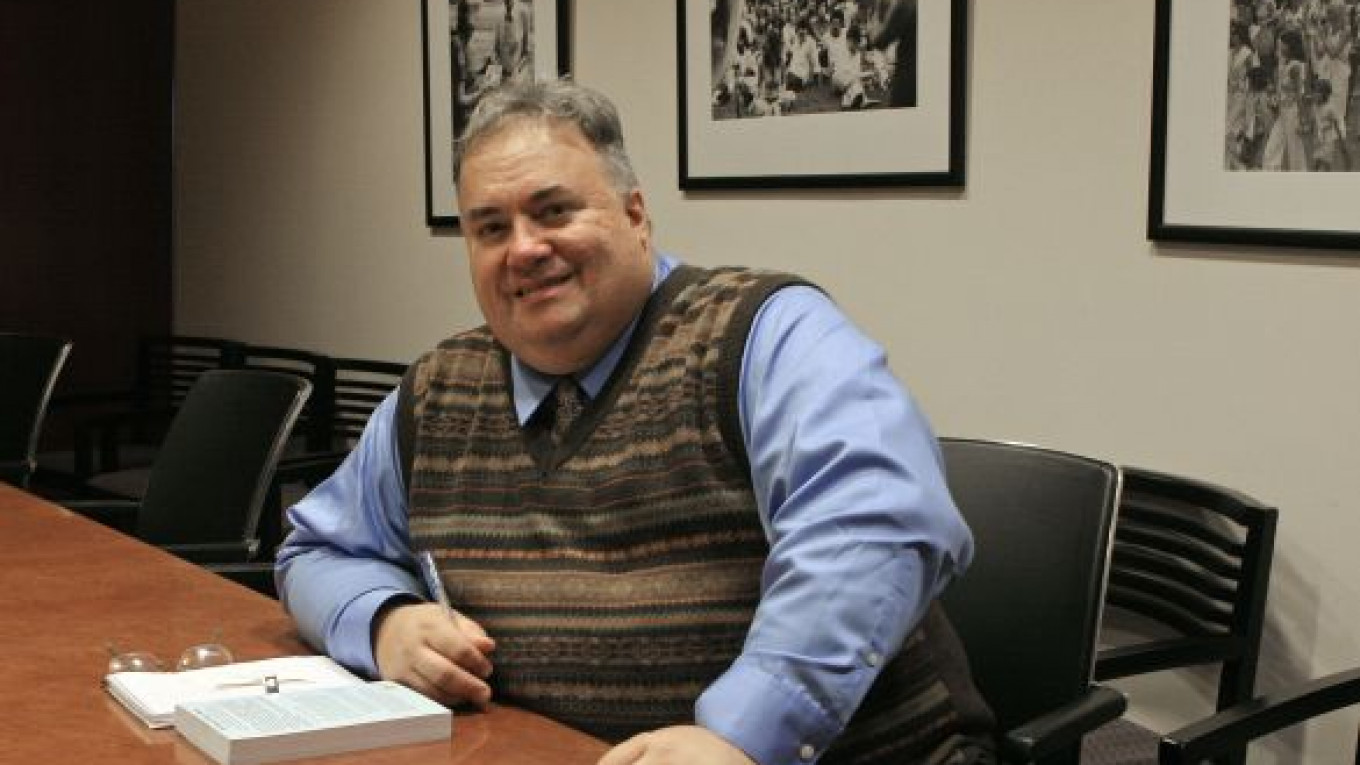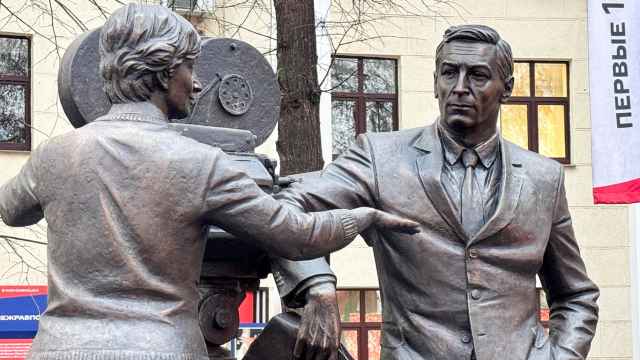When Joseph P. Mazza graduated from George Washington University in international politics in 1984, he had no intention of becoming a translator. He did, however, love languages — in college he had studied Russian, Chinese, French and Spanish — so he accepted a job offer as a clerk translator at the Navy, translating from Russian. In 1989, he jumped to the State Department as a translator of Romance languages (Spanish, French, Italian and Portuguese). In 2003, he became head of that section and, in 2006, became chief of the translating division, overseeing 20 staff translators, eight translation project managers and about 450 contractors. On a recent trip to the U.S. Embassy in Moscow, he agreed to meet with the press for the first time and talked with Moscow Times columnist Michele A. Berdy about the genre of diplomatic translation, how 18th-century language is meeting the new communication technology, and how to handle VIP clients who want the translation yesterday.
Q: Is diplomatic translation a separate genre?
A: In diplomatic translation we deal first and foremost with a diplomatic note from one leader to another leader. It can be something as simple as "Thank you for the handsome set of cufflinks," or it can be something as complex as "I don't support your stance on a certain international issue, and here's why." In international diplomacy there is a very old set of stock phrases that grew up in Latin, then in French, and then were translated into the vernacular and are now in everything from Azeri to Vietnamese.
For example, in English we use "I should like to inform you," "I have the honor to acknowledge the receipt of," and "I present my compliments to … ." We ask for someone's "kindly consideration of this proposal." As we say, we are never kind, but we give kindly consideration. There are words that are verboten, too. We actually stay away from "please" in diplomatic usage. We prefer a terser style.
People will sometimes challenge this code, but if you keep it, you always know where you stand. If you close a letter and say, "I'm giving you the assurances of my highest consideration," then the next time if the letter comes with "I'm giving you the assurances of my high consideration," you see that something subtle has changed.
Q: Do you aim for a literal translation?
A: In my little part of the world, we want to give our decision makers and our audiences — and sometimes that's the general public — a smooth, clean, natural-sounding read. The message is the most important thing, so why be distracted by unnatural constructions? If it is one of these critical notes where a world leader is opening up and saying what he or she really thinks about an issue, you want the decision maker — maybe the president himself — to be reading a clean message.
While certainly there is a lot of emphasis on understanding the source language, there is a huge emphasis on style and usage in English. How do you take these ideas and put them into an English that is easy to read, that doesn't sound like a translation but yet doesn't depart from the original and doesn't editorialize? In some senses, you almost erase yourself.
Q: Tell me about treaty conformity. Treaties always end, "Done—"
A: "—in the English and Russian languages, in two versions, both versions being equally authentic."
In the United States, we have a rule that before any treaty or international agreement is signed, it must go through a certification process. The authority to do that is vested in my office. One or two linguists will sit down with the Russian on one side and the English on the other, and they go through it line by line, word for word, looking for discrepancies.
Q: Is the treaty typically written by the American side and then translated?
A: Sometimes the United States will float the treaty in both languages. Sometimes the United States will only float the treaty in English and receive the translation from the other side. Sometimes it all comes from the other side. And then there are multilateral treaties. It usually goes through several rounds of the certification process. If there is a problem, we would typically send it back to the negotiating team, and they would engage the other side. And little by little you whittle it down so that there are no discrepancies, and the linguists who work in my office can say: We have achieved substantive conformity; now we're ready to sign.
Q: I have to ask you about the "reset" translation gaffe. How did it happen?
A: Part of me wishes I knew, and part of me is glad that I don't know. The honest truth is that I don't know how it happened. It didn't go through my office. The funny thing is that it was a public relations vehicle to get a word attached to an era. And it worked. Fortunately, at the time, people took it with a great sense of humor, even the principals, and that helped make the word engrained in people's memory.
But it makes you think about what you're doing for quality control. And when your clients say, "I got to have it — don't review it, just give it to me," we have to fight back.
Q: Have you changed the technology that you're using?
A: We haven't found any machine translation that works, but we don't dismiss it as readily as we did 20 years ago. Computer-assisted translation is another story. About 10 years ago, we started with Trados, and it worked very well for multilingual glossaries. Using its translation memory was harder for lots of reasons. I think the earlier version wasn't as user-friendly as we liked. And then there was resistance to it, too. But the younger generation of translators expects it.
When Barack Obama became president, a lot of things changed. There was a huge emphasis on using social media as a means of communication. To give you an example, the president gave a speech in Cairo to the Muslim world in June 2009. We translated that speech into about two dozen languages. And if that wasn't hard enough, working all night, they wanted it streamed on YouTube and various social media. Getting the fonts to play right all on a very tight schedule was something we would not have been able to do without our eight young translation project managers. They've done a spectacular job of bringing technology into play in this 230-year-old office.
Q: It doesn't really get easier, does it?
A: Human communication is so complex and fragile. Just think about communication in a marriage. I'm married to someone whose native language is Spanish. And sometimes I say, "Ah, you don't understand anything I'm saying to you." But I wonder — is it because of Spanish and English, or because humans just have a hard time communicating? Certainly the nations of the world wouldn't be able to talk together or write to each other if it weren't for the interpreters or the translators. I can't think of a better way to spend my life.
A Message from The Moscow Times:
Dear readers,
We are facing unprecedented challenges. Russia's Prosecutor General's Office has designated The Moscow Times as an "undesirable" organization, criminalizing our work and putting our staff at risk of prosecution. This follows our earlier unjust labeling as a "foreign agent."
These actions are direct attempts to silence independent journalism in Russia. The authorities claim our work "discredits the decisions of the Russian leadership." We see things differently: we strive to provide accurate, unbiased reporting on Russia.
We, the journalists of The Moscow Times, refuse to be silenced. But to continue our work, we need your help.
Your support, no matter how small, makes a world of difference. If you can, please support us monthly starting from just $2. It's quick to set up, and every contribution makes a significant impact.
By supporting The Moscow Times, you're defending open, independent journalism in the face of repression. Thank you for standing with us.
Remind me later.







